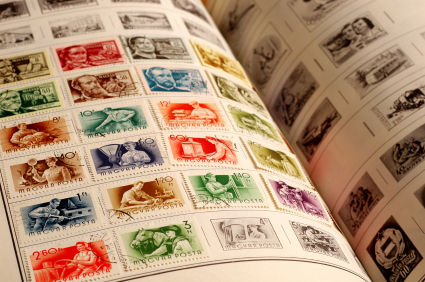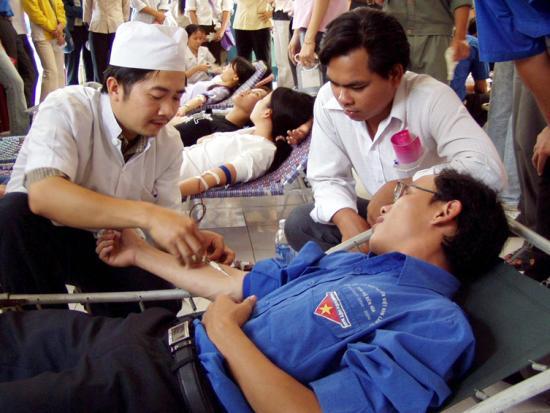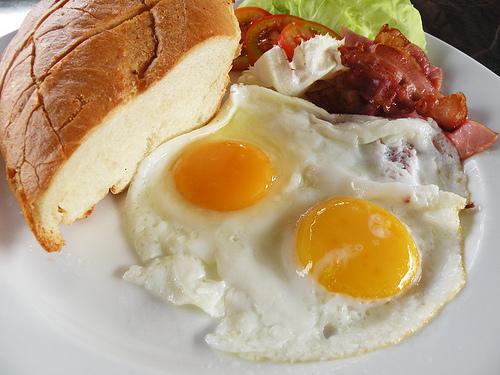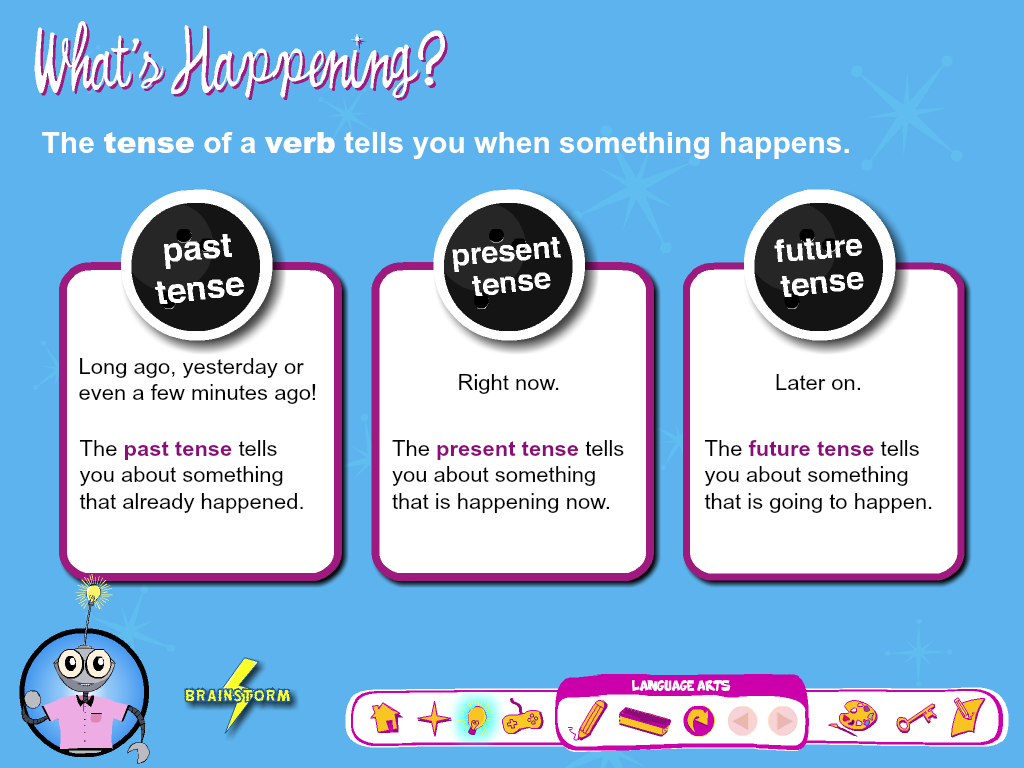Hãy nhập câu hỏi của bạn vào đây, nếu là tài khoản VIP, bạn sẽ được ưu tiên trả lời.

1. Từ chỉ số lượng:
- a lot of + N đếm được và không đếm được
- lots of + N đếm được và không đếm được
- many + N danh từ đếm được số nhiều
- much + N không đếm được
Ex: She has lots of / many books.
There is a lot of / much water in the glass.
2. Câu so sánh:
a. So sánh hơn:
- Tính từ ngắn: S + be + adj + er + than ….. I am taller than
- Tính từ dài: S + be + more + adj + than …. My school is more beautiful than your school.
b. So sánh nhất:
- Tính từ ngắn: S + be + the + adj + est ….. He is the tallest in his
- Tính từ dài: S + be + the most + adj …. My school is the most
c. Một số từ so sánh bất qui tắc:
- good / well better the best
- bad worse the worst
3. Từ nghi vấn:
- what: cái gì
- where:ở đâu
- who: ai
- why: tại sao
- when: khi nào
- how: như thế nào
- how much: giá bao nhiêu
- how often: hỏi tần suất
- how long: bao lâu
- how far: bao xa
- what time: mấy giờ
- how much + N không đếm được: có bao nhiêu
- how many + N đếm được số nhiều: có bao nhiêu
4. Thì
Thì | Cách dùng | Dấu hiệu | Ví dụ |
| SIMPLE PRESENT (Hiện tại đơn)
– To be: thì, là, ở KĐ: S + am / is / are | – chỉ một thói quen ở hiện tại – chỉ một sự thật, một chân lí. | – always, usually, often, sometimes, seldom, rarely (ít khi), seldom (hiếm khi), every, once (một lần), | – She often gets up at 6 am. – The sun rises in the east. (Mặt trời mọc ở hướng Đông) |
| PĐ: S + am / is / are + not NV: Am / Is / Are + S …? – Động từ thường: KĐ: S + V1 / V(s/es) PĐ: S + don’t/ doesn’t + V1 NV: Do / Does + S + V1 …? | twice (hai lần) | ||
| PRESENT CONTINUOUS (Hiện tại tiếp diễn) KĐ: S + am / is / are + V-ing PĐ: S + am / is / are + not + V-ing
NV: Am / Is /Are + S + V-ing? | – hành động đang diễn ra ở hiện tại. | – at the moment, now, right now, at present – Look! Nhìn kìa – Listen! Lắng nghe kìa | – Now, we are learning English. – She is cooking at the moment. |
| SIMPLE PAST (Quá khứ đơn)
– To be: KĐ: I / He / She / It + was You / We / They + were PĐ: S + wasn’t / weren’t NV: Was / were + S …?
– Động từ thường: KĐ: S + V2 / V-ed PĐ: S + didn’t + V1 NV: Did + S + V1 ….? | – hành động xảy ra và chấm dứt trong quá khứ. | – yesterday, last week, last month, …ago, in 1990, in the past, … | – She went to London last year. – Yesterday, he walked to school. |
| SIMPLE FUTURE (Tương lai đơn)
KĐ: S + will / shall + V1 I will = I’ll PĐ: S + will / shall + not + V1 (won’t / shan’t + V1)
NV: Will / Shall + S + V1 …? | – hành động sẽ xảy ra trong tương lai | – tomorrow (ngày mai), next, in 2015, tonight (tối nay), soon (sớm) …. | – He will come back tomorrow. – We won’t go to school next Sunday. |

01. An's hobby is collecting stamps.

02. My brother has a bad habit: watching TV while eating

03. It's good to donate blood because you can save people's life.

04. My mum loves buying flowers and put them in different vases.

05. My favorite food is omelette

Fill in each blank with a suitable word. The first letter of the word has been provided:
01. An's hobby is collecting..........................stamps.

02. My brother has a bad habit: watching.......................... TV while eating

03. It's good to donate.......................blood because you can save people's life.

04. My mum loves buying flowers.........................and put them in different vases.

05. My favorite food is omelet...............................


bạn vào vndoc.com rồi đánh đề thi .... rồi sẽ có đó !!!
chém,đề năm nay hình như mua thì phải,mà mik với bạn khác huyện nhá

FINAL TEST
Full name:……………………….
Class:……………………………
Date:…………………………….
A- LISTENING
PART 1: Listen and choose the correct answers. (2.34/p. 68)
1. Picasso lived all of his life in _______
A. France B. Washington C. New York
2. Zsa Zsa Gabor studied in ________
A. New York B. Switezerland C. Britain
3. Norma Jeane Baker changed her name to _________
A. Marilyn Monroe B. Marie Curie C. Molly
4. Monroe was very ________ when she died
A. old B. happy C. young
5. Pele scored___________goals in _______ matches for Brazil
A. 77- 92 B. 92- 77 C. 76-93
PART 2: Listen and check the correct answer. (3.14/ p. 90)
True False
6. Ania found it difficult at first because she was homesick.
7. Ania can talk to and understand English people quite well.
8. Abdul’s parents were born in Pakistan.
9. Abdul thinks of himself as British.
10. Abdul speaks English and Punjabi.
B – LEXICO-GRAMMAR
Choose the best answer by circling A, B, C or D
11. All students have to ________ an exam at the end of the school year.
A. make B. do C. take D. have
12. We called the mechanic when our car _______
A. broke down B. took off C. got in D. got out of
13. You have to be 18 to buy alcohol in a ________
A. bakery B. bookshop C. bank D. pub
14. I _________ swimming yesterday because it was very cold.
A. go B. went C. didn’t go D. wasn’t go
15. There is _________ orange juice in the bottle.
A. a B. an C. some D. any
16. _________ text messages do you send a day?
A. How B. How long C. How much D. How many
17. A: “Would you a sandwich?” B: “No, thanks. I _________ lunch?”
A. have B. had C. have had D. has had
18. He __________ his homework yet.
A. has finished B. hasn’t finished C. finished D. finishes
19. Where’s Vienna? – It is in _______
A. Austria B. Australia C. Brazil D. Italy
20. We couldn’t see because it was _______.
A. sunny B. windy C. foggy D. icy
C – EVERYDAY ENGLISH
Complete the dialogue with the sentences and questions given:
Clerk: Next please. Mary: (0) __F___ Clerk: (21) _____ Mary: Next Sunday. Clerk: (22) ______ Mary: Here you are. Clerk: Thank you. Here’s your change. Mary: (23) _____ Clerk: At 14.30 Mary: (24) ______ Clerk: Number 9 Mary: (25) _____ Clerk: No, it’s a direct train. | A. That’s £20, please. B. Which platform does it depart from? C. Do I have to change? D. How much is the ket? E. When are you coming back? F. Can I have a return ket to Oxford, please? G. When is the next train? |
D – READING
Read the text and choose the correct answer:
The Kitchen Cupboard
Tania Francis is the owner of a new food store called The Kitchen Cupboard. Our reporter, Fran Peters, asked her about the business.
Fran Your food store is very popular Tania. Why do you think this is?
Tania Well, healthy food is big news these days. Our store sells healthy food and we tell you how to cook it!
Fran Do you tell every customer?
Tania We give recipes every time you buy something at our store.
Fran And do you eat the food from your store?
Tania I certainly do! I try to stay healthy. I go to the gym, I go jogging every day and I write the recipes for the store. Of course, I have to cook them first!
Fran Which is your favourite recipe?
Tania That’s difficult. I really the chicken and tomato burgers and, of course, the fish and cheese pie. That’s very popular.
Fran Do you think people really want to be healthier these days?
Tania Yes. There are a lot of reports in the newspapers and magazines about people who are too heavy. It’s so dangerous. People are learning to cook and eat healthier food. But healthy doesn’t mean boring! Come along to The Kitchen Cupboard and see how many delicious meals you can cook with healthy food.
26. At The Kitchen Cupboard you can____________
A. have a cooking lesson. B. eat a good meal. C. buy healthy food.
27. Tania_______
A. has a lot of cookery books. B. loves eating. C. does a lot of exercise.
28. One of her favourite recipes includes____________
A. meat and vegetables. B.fish and vegetables. C. fruit and vegetables.
29. Tania thinks people want to be healthy because___________
A. they know it’s dangerous to be heavy.
B. they healthy food.
C. they want to be in the newspapers.
30. Healthy food______________
A. is usually boring. B. is often expensive. C. can be delicious.
E – WRITING
Part 1: Put the words in the correct order to make sentences:
31. did/ Sunday/ you/ do/ what/ night/ on/ ?
………………………………………………………………………………..................
32. homework/ how/ does/ much/ your/ you/ teacher/ give/ ?
…………………………………………………………………………………………..
33. curry/ can/ have/ please/ I/ chicken/ ?
…………………………………………………………………………………………..
34. I’d/ cup/ tea/ of/ / a.
…………………………………………………………………………………………..
35. just/ I/ have/ sister/ phoned/ in/ my/ Australia.
………………………………………………………………………………………….
Part 2: Imagine you are on holiday in a big city. Write an e-mail to a friend. Write about these things:
- where you are
- what the weather’s
- what you have already done
- what you haven’t done yet
--------- THE END ---------
chưa thi nên chưa có bn ơi nhưng mấy đề năm trước bn cứ ôn đi

Đây nhé :>> Chunn
1. Câu cảm thán (exclamation sentences)

Câu cảm thán
Câu cảm thán (exclamation sentences) là loại câu được sử dụng để diễn tả cảm xúc của người nói (vui, buồn, phẫn nộ, thích thú, ngạc nhiên,…) về một sự vật, sự việc nào đó. Trong tiếng Anh, câu cảm thán thường được cấu tạo với từ “What” hoặc “How”. Dấu hiệu nhận biết câu cảm thán
1.1. Câu cảm thán với “What”
Cấu trúc:
- What + (a/an) + adj + danh từ đếm được/danh từ đếm được số nhiều
Ví dụ: What a beautiful skirt! (Chiếc váy đẹp quá)
- What + adj + danh từ không đếm được
Ví dụ: What amazing information! (Thật là một thông tin đáng kinh ngạc)
1.2. Câu cảm thán với “How”
Cấu trúc: How + adjective/ adverb + S + V
Ví dụ: How good she does! (Cô ấy làm tốt lắm)
2. Câu nghi vấn (interrogative sentences)

Câu nghi vấn
Câu nghi vấn (interrogative sentences) hay còn gọi cách khác là câu hỏi, được sử dụng khi người nói muốn được biết thông tin gì đó từ người nghe. Trong chương trình tiếng Anh lớp 7, người học sẽ được biết đến câu nghi vấn kết hợp với các từ sau:
- Bắt đầu bằng WHAT (cái gì). Ví dụ: What is this? (Đây là cái gì thế?), What are you doing? (Bạn đang làm cái gì thế?)
- Bắt đầu bằng WHERE (ở đâu). Ví dụ: Where is pencil? (Cái bút chì ở đâu rồi?), Where do you go tonight? (Bạn sẽ đi đâu tối nay?)
- Bắt đầu bằng WHEN (khi nào). Ví dụ: When do you do your homeworks? (Khi nào thì bạn làm bài tập về nhà thế?), When do you do to work? (Khi nào bạn đi làm vậy?)
- Bắt đầu bằng WHO (ai). Ví dụ: Who is he? (Anh ta là ai thế?)
- Bắt đầu bằng WHY (tại sao). Ví dụ: Why do you go to hospital? (Sao cậu lại phải đến bệnh viện thế?), Why do you this book? (Sao cậu lại thích cuốn sách này?)
- Bắt đầu bằng HOW OFTEN (hỏi về tần suất). Ví dụ: How often do you go swimming a week? (Một tuần cậu đi bơi bao nhiêu lần?)
- Bắt đầu bằng HOW LONG (bao lâu). Ví dụ: How long do you do your homework? (Bạn làm bài tập trong bao lâu?)
- Bắt đầu bằng HOW FAR (bao xa). Ví dụ: How far from your house to your school? (Từ nhà bạn đến trường xa bao nhiêu?)
- Bắt đầu bằng HOW MANY/MUCH (Số lượng). Ví dụ: How many people are there in your family? (có bao nhiêu người trong gia đình bạn?)
3. Câu so sánh (Comparisons)

Câu so sánh
Có hai loại câu so sánh bạn sẽ gặp trong chương trình ngữ pháp tiếng Anh 7:
3.1. So sánh hơn
Là loại câu dùng để so sánh hơn kém giữa 2 sự vật, sự việc. Cấu trúc so sánh hơn trong tiếng Anh cụ thể như sau:
- So sánh hơn dùng với tính từ ngắn: Adj + -er + than + …
Ví dụ: She is taller than me. (Cô ấy cao hơn tôi)
- So sánh hơn dùng với tính từ dài: more + Adj + than + …
Ví dụ: This problem is more difficult than that one. (Vấn đề này khó hơn vấn đề kia)
3.2. So sánh nhất
Là loại câu dùng để so sánh sự vật, sự việc này hơn tất cả những sự vật, sự việc khác ở một điểm nào đó. Cấu trúc dạng câu so sánh nhất gồm:
- So sánh nhất dùng với tính từ ngắn the + Adj + -est
Ví dụ: Lan is the tallest student in her class. (Lan là học sinh cao nhất lớp)
- So sánh nhất dùng với tính từ dài: the + most + Adj
Ví dụ: This is the most difficult problem in the book. (Đây là vấn đề khó nhất trong sách)
4. Các thì trong tiếng Anh (tense)

Các thì trong tiếng Anh
Trong chương trình ngữ pháp tiếng Anh lớp 7, các loại thì thường sử dụng là:
- Thì hiện tại đơn được sử dụng để miêu tả một thói quen hoặc diễn tả một sự thật hiển nhiên. Cấu trúc thì hiện tại đơn trong tiếng Anh là: S + V.
Ví dụ: I am a student. (Tôi là học sinh)
Xem thêm: 10 phút giỏi ngay thì Hiện tại Đơn
- Thì hiện tại tiếp diễn dùng để diễn tả một hành động đang xảy ra tại thời điểm nói. Cấu trúc thì hiện tại tiếp diễn trong tiếng Anh là: S + am/is/are + V-ing.
Ví dụ: The children are playing football now. (Lũ trẻ đang chơi đá banh)
Xem thêm: 10 phút giỏi ngay thì Hiện tại Tiếp diễn
- Thì quá khứ đơn dùng để diễn tả một hành động đã xảy ra và kết thúc trong quá khứ. Cấu trúc thì quá khứ đơn trong tiếng Anh là: S + V (P1).
Ví dụ: I went to the concert last week. (Tôi đã đi đến buổi hòa nhạc vào tuần trước)
Xem thêm: Ẵm trọn điểm với bài tập công thức thì Quá khứ Đơn
- Thì tương lai đơn dùng để diễn tả một hành động hoặc một kế hoạch sẽ xảy ra trong tương lai tại thời điểm nói. Cấu trúc thì tương lai đơn trong tiếng Anh là: S + will + V.
Ví dụ: At 10 o’clock tomorrow, my friends and I will be going to the museum. (Vào lúc 10 giờ sáng mai, tôi và đám bạn sẽ đi viếng thăm viện bảo tàng)
Xem thêm: 10 phút giỏi ngay thì Tương lai Đơn & Tương lai Gần
Ngoài ra, bạn cũng có thể tham khảo video sau để nắm được kiến thức khái quát về tất cả các thì trong tiếng Anh nhé: Tổng hợp kiến thức về các thì trong tiếng Anh
5. Câu lời khuyên (advice sentences)

Câu lời khuyên
Câu lời khuyên (advice sentences) được sử dụng để thuyết phục, khuyên bảo người nghe nên làm điều gì đó. Có 2 dạng câu lời khuyên trong tiếng Anh:
- Cấu trúc: S + should/ought to
Ví dụ: You should do your housework. (Bạn nên làm việc nhà đi)
- Cấu trúc: S + must (thường diễn tả một mệnh lệnh)
Ví dụ: You must do your homework (Em phải làm bài tập về nhà)
6. Câu hướng dẫn chỉ đường (Giving directions)

Câu hướng dẫn chỉ đường
- Câu hỏi đường: Could you tell me the way to/how to get to ___ ?
- Chỉ đường: go straight ahead,...

Bạn lên Vndic tham khảo các đề thi nhé
Ko biết trước đề được đâu
PART A: LISTENING COMPREHENSION (10pts)
I. Listen to the conversation and decide which statements are true or false. k (v) in the right column. (6pts)
Statements
True
False
1. Mi enjoys collecting glass bottles.
2. She started her hobby four years ago.
3. Her father shares this hobby with her.
4. She thinks collecting glass bottles is difficult.
5. She can make flower vases or lamps from these bottles.
6. She will continue her hobby in the future.
II. You will hear a woman asking for information about the city bus tour. Listen and complete the answers 7-10. (4pts)
City Bus Tours
Bus Tours depart every (7) _________ minutes.
Last tour departs at (8) __________.
ket prices: + Adults: £10
+ Children: £ 5
Tour Bus Office Address: (9) __________________ Street.
Buses leave from the (10) _________ Hall.
PART B: PRONUNCIATION, VOCABULARY AND GRAMMAR
III. Choose the word A, B, C or D whose underlined part is pronounced differently from the others. (4pts)
11. A. pick B. ticket C. rock D. vacation
12. A. start B. minutes C. measure D. sick
13. A. together B. guess C. regular D. teenager
14. A. knife B. socket C. desk D. bookshelf
IV. Choose the best answer A, B, C or D to complete the sentences. (10pts)
15. This papaya is green. It is not __________.
A. small B. yellow C. good D. ripe
16. I didn't go to the cinema yesterday and Lan __________.
A. doesn't, either B. didn't, neither C. didn't, either D. wasn't, either
17. Would you to go to the movies tonight? - __________
A. Yes, I do B. Yes, I would C. Yes, I'd love to D. Yes, please
18. Some people play video games at home. __________ play them in arcades.
A. Others B. Other C. Another D. Each other
19. Hoa is reading short stories __________ Jack London.
A. of B. from C. by D. with
20. She was __________ of watching television.
A. interested B. tired C. tiring D. pleased
21. My new shoes don't __________ me very well. They are too big.
A. suit B. match C. fit D. agree
22. Mary and I are looking forward __________ our old friend.
A. of seeing B. for seeing C. to see D. to seeing
23. There are two churches in the town and __________ of them are extremely old.
A. both B. each C. all D. most
24. I'm going to a wedding on Saturday. __________ is getting married.
A. A friend of me B. A friend of mine C. One my friend D. A friend of I
V. Supply the correct tense or form of the verbs in brackets. (10pts)
25. I remember (meet) him somewhere.
26. You look tired. Sit down and I (make) you a cup of tea.
27. I'm trying (finish) my work. Please, stop (talk).
28. She paid for her ket and (leave).
29. You look worried. What you (think) about?
30. Everything (look) strange to newcomers.
31. My friend asked me (not tell) to anyone about it.
32. After (leave) school, John (find) it very difficult to get a job.
VI. Give the correct form of the words in brackets to complete the sentences. (10pts)
33. He tried to learn Chinese but he was ___________. (SUCCESS)
34. He will never forget his happy ___________. (CHILD)
35. How is your grandfather? – He is much ___________ today. (WELL)
36. I watch TV every day because it is very ___________. (INFORM)
37. We must keep our environment ___________. (POLLUTE)
38. They canceled all the ___________ because of the fog. (FLY)
39. I'm going to the shop for a rice ___________. What brand do you recommend? (COOK)
40. Every ___________ in my neighborhood has at least one TV set. (HOUSE)
41. I can do all of these exercises ___________. (EASY)
42. His ___________ of some words is not correct. (PRONOUNCE)
VII. Supply the missing prepositions. (5 pts)
43. I couldn't meet Mary because she was ________.
44. It won't be very long. I'll be back ________ ten minutes.
45. Please, translate this arle ________ English for me.
46. My brother is much better ________ gardening than me.
47. Sam Son beach is always crowded ________ tourists in the summer.
PART A: PHONES: (5 points).
I. Choose the word whose underlined part pronounced differently from that of the others by circling A, B, C or D.
1. A. nervous B. scout C. household D. mouse
2. A. last B. taste C. fast D. task
3. A. improved B. returned C. arrived D. stopped
II. Choose the word whose stress pattern is different from the others by circling A, B, C or D .
1. A. comfort B. nation C. apply D. moment
2. A. medical B. advise C. vegetables D. physical
PART B: VOCABULARY AND GRAMMAR:
I. Circle the best answer A, B, C or D to complete the following sentences: (10 points).
1. Most people enjoy .......................to different parts of the world.
A. to travel B. travel C. traveling D. traveled
2. ....................... time do you spend learning English every day?
A. How much B. How many C. How long D. How often
3. This orange tastes ........................
A. sweetly B. sweety C. sweet D. sweets
4. Every one had ....................... at the picnic.
A. good time B. a good time C. good times D. better time
5. Would you to .......................for a walk later?
A. have B. make C. do D. go
6. Please don’t ....................... so much noise.
A. go B. make C. do D. take
7. Is there anything good.......................TV tonight?
A. on B. in C. near D. at
8. My mother doesn’t coffee and .......................
A. neither do I B. neither I do C. either do I D. I don’t too
9. Wear your hat. It will .......................your head.
A. protect B. defend C. secure D. guarantee.
10. The news on TV last night...........................very good.
A. was B. has C. were D. be
11. My father often drives his car ______ a speed of 50 kilometres an hour.
A. with B. on C. in D. at
12. Water never runs ______.
A. downhill B. uphill C. upside D. downside
13. It will be ready _______ two weeks.
A. for B. on C. in D. to
14. His parents were _______ poor to send him to school.
A. too B. much C. so D. very
15. It took ______ time to learn this lesson.
A. so many B. so C. so much D. such
16. He can’t buy that car because he has ______ money.
A. a lot of B. a little C. little D. few
17. It is ______ book that just a few people it.
A. so an old B. so old C. such old D. such an old
18. Unless you ______ quiet, I’ll go out.
A. don’t keep B. keep C. kept D. didn’t keep
19. How far is it from your house to your school? - “ ________”
A. I take 20 minutes to get to my school.
B. It took 20 minutes to get to my school.
C. It takes me 20 minutes to get to my school.
D. It took me 20 minutes to get to my school.
20. How often do you go to the post office? - “ _________”
A. two a week B. twice a week C. two times a week D. second time a week
II. Give the correct form of the verbs in brackets.
1. What you (do)…………at the moment? I (watch) ………….T.V.
2. We (not buy)................a book yesterday.
3. You must (do) ......................your homework before watching TV.
4. How much it ( cost ) …………….to mail a latter to England?
5. I will send him the message as soon as he (return)………………
6. A little girl can’t spend all her time (listen) ……………..to stories.
7. Hong and Nam (be )............ absent from class yesterday?
8. When my sister and I (live)................in Hue we (visit)............... a lot of interesting places.
III. Fill in the blank with one suitable preposition.
1. Life ……….the city is .different from that in the country.
2. Trang received a letter …………her aunt last week.
3. Eating too much candy is bad …………you.
4. Bao is very good ………………fixing house hold appliances.
5. We usally go fishing ………….summer.
6. They always go to school …………foot.
7. There are some English books ……….. the back of the library.
8. My school team took part …………… walking competition last year.
9. Please, come ……………….. It is cold outside.
10. Mr. Long is having a meeting ………….8.00 and 10.00 am today.
IV. Give the correct form of the words in parentheses. (10 points).
1. She often feels …………………when she gets bad marks. (happy)
2. My stomachache ....................... after I took the tablets. (appear)
3. My favorite subject at school is physical…………….. (educate)
4. Do you know that video games may be .................? (addict)
5. Catching the common cold is ................for everybody. (please)
6. Hoa is the most…………………………. girl in her class. (beauty)
7. My father has a ...................…computer. He often brings it with him when he’s away on business. (port)
8. Some of the children …….boys, play marbles when there is a break. (main)
9. My sister has a big……………………….….of stamps. (collect)
10. I have ....................time to play than my friends. (little)